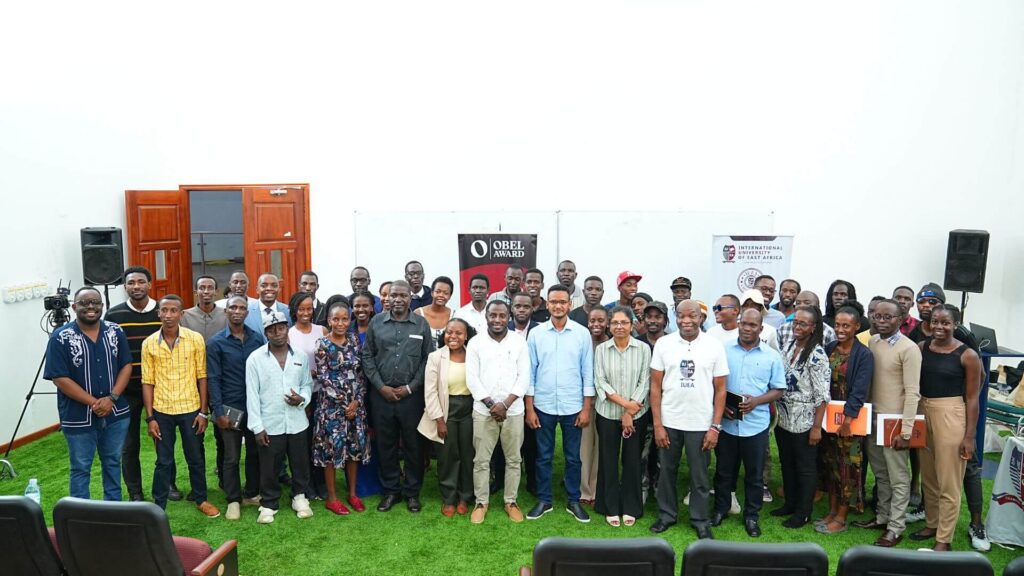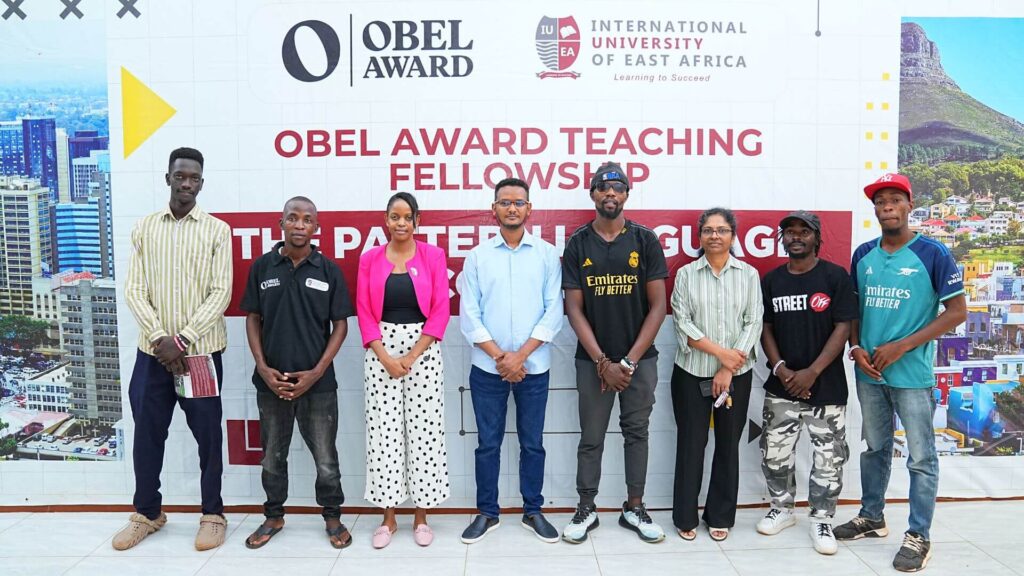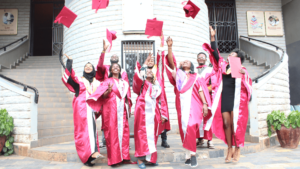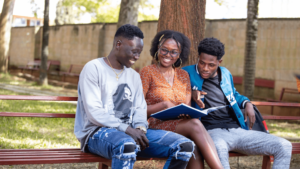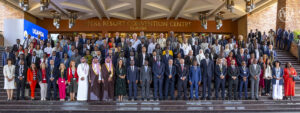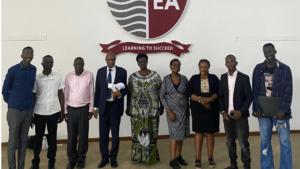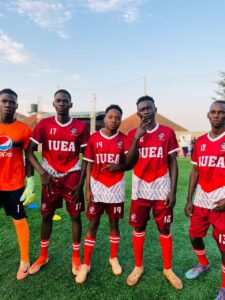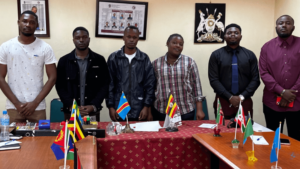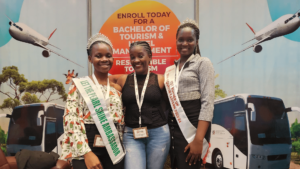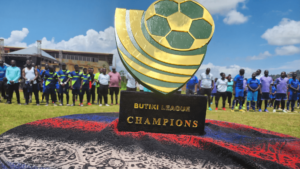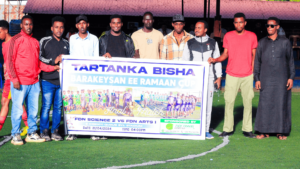Marking a monumental milestone in architectural innovation, the International University of East Africa (IUEA) concluded the first phase of the Obel Award Teaching Fellowship on May 7th, 2024. It was an event not just of celebration, but of showcasing the extraordinary accomplishments of our dedicated architecture students and esteemed alumni.
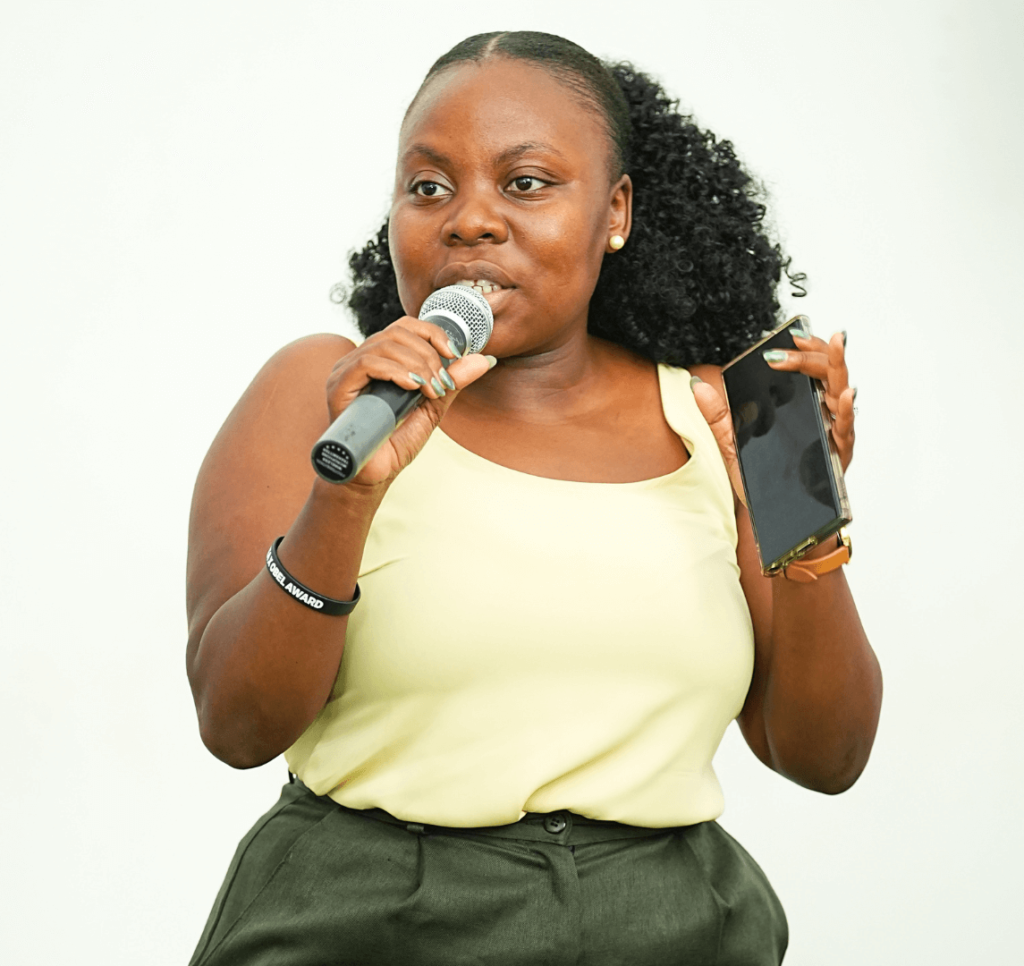
What is the Obel Award Teaching Fellowship?
The Obel Award Teaching Fellowship stands as a beacon of collaboration, drawing experienced professionals from diverse fields to impart their knowledge in academic settings. This year’s theme, “Cities of Adaptation,” resonates across Africa, Asia, and Australia, empowering institutions like IUEA to offer courses that transcend conventional boundaries.
IUEA proudly hosts the Obel Award Teaching Fellowship in Uganda, providing a platform for students to learn from global experts. Over the past two months, budding architects have immersed themselves in the intricacies of community-centric design, guided by principles that ensure cultural sensitivity and longevity in architectural solutions.
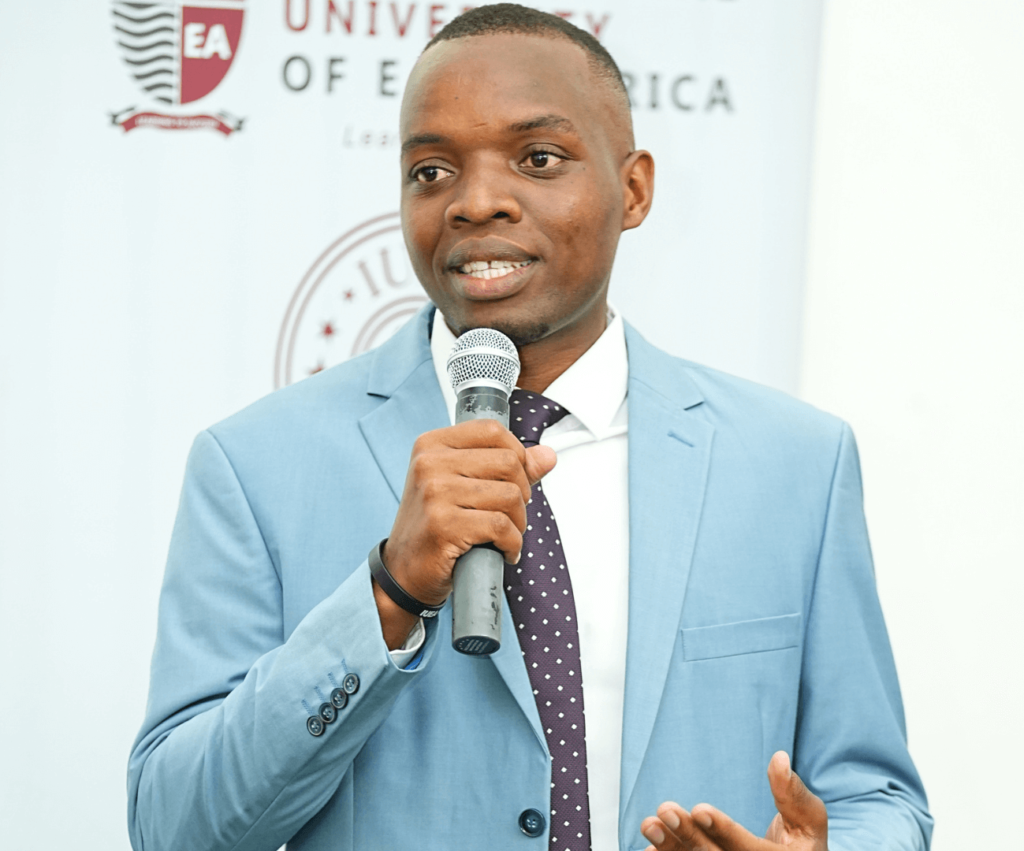
What was presented during the event?
At the heart of the event were the presentations by five student groups, each tasked with transforming the Kitintale community through architectural innovation. From revitalising economic stability with a modern food ecosystem to fostering youth engagement with a grand recreation centre, each design encapsulated meticulous research and community involvement.
Group four introduced a transformative food ecosystem to bolster economic stability in Kitintale. Recognising the community’s reliance on produce sales, their design aligns with Uganda’s development goals highlighted in our MOU with NEMA, featuring a spacious market area optimised for efficiency.
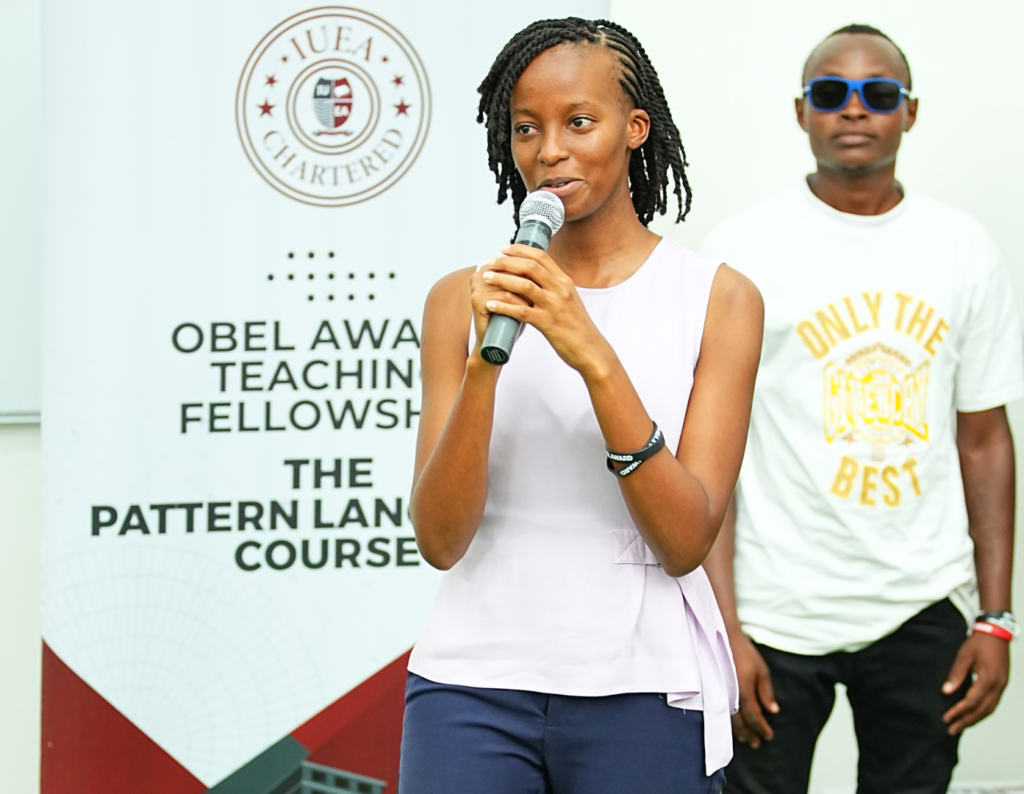
Group 2’s innovative project focused on addressing essential community needs. They designed a multifunctional meeting space, providing a central hub for gatherings and discussions. Additionally, their bridge ensured safe access to the site, addressing previous challenges. Moreover, their eco-toilet solution aimed to safeguard the local water source, enhancing long-term health in the area. The project unfolded in phases, beginning with the bridge, followed by the community shelter, and concluding with the eco-toilet installation.
Group three unveiled a vibrant recreation centre, tailored to Kitintale’s youthful demographic. In collaboration with locals and government officials, they envisioned a pavilion seamlessly blending with nature, echoing green architecture highlighted at the 6th ICCAUA hosted by IUEA.
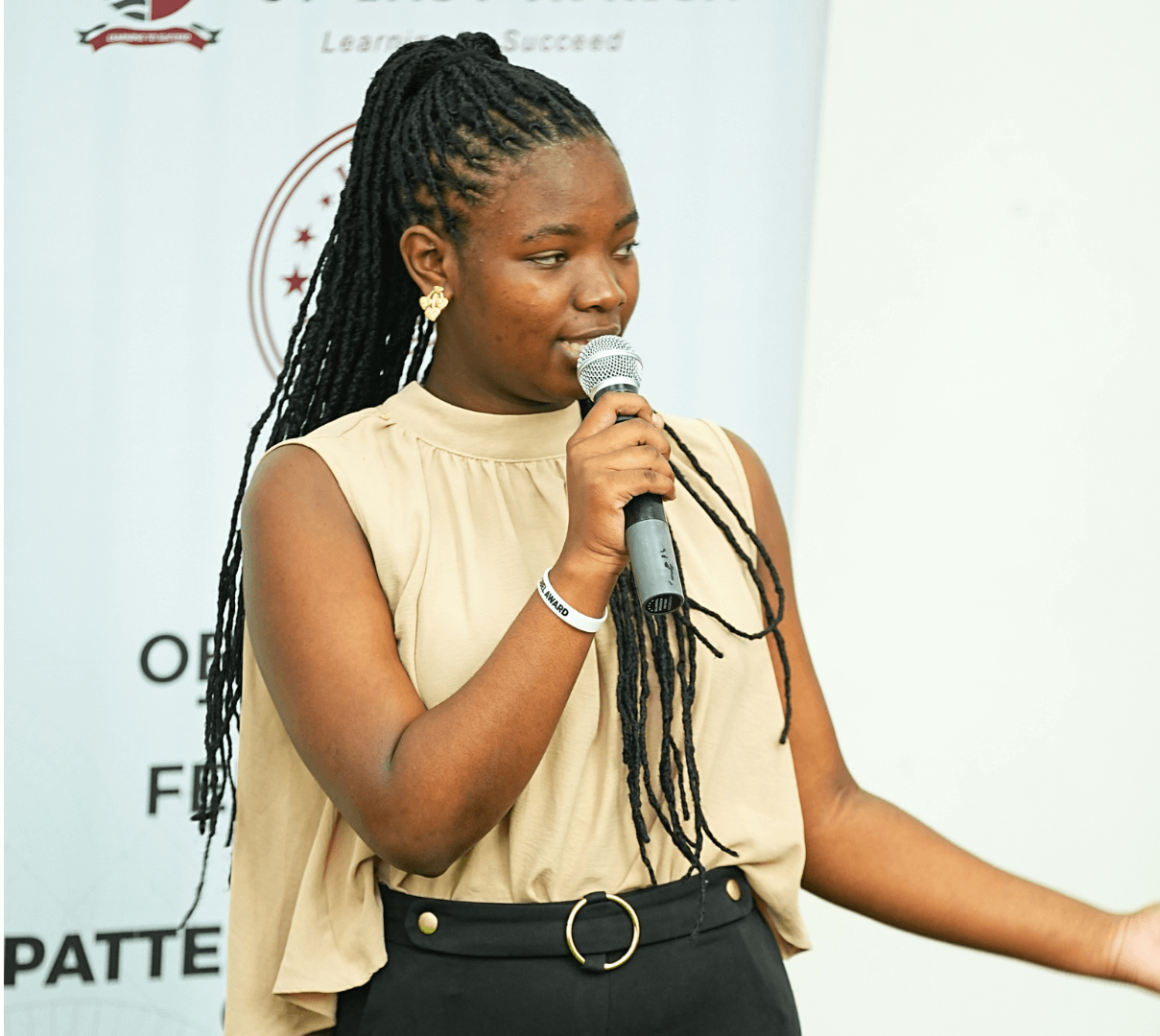
Group five’s modern garden taps into Kitintale’s recycling culture. Utilising recycled plastics for walkways, their design not only addresses waste management but also fosters sustainable practices crucial for community development. The team went as far as to showcase samples of the plastic bricks, both low density and high density samples.
Group one devised a dynamic social-economic hub, integrating graffiti and farming to promote financial inclusivity. By melding modern design with community needs, they created a multifunctional space for agricultural trade and recreational activities, aligning with Uganda’s national development goals.
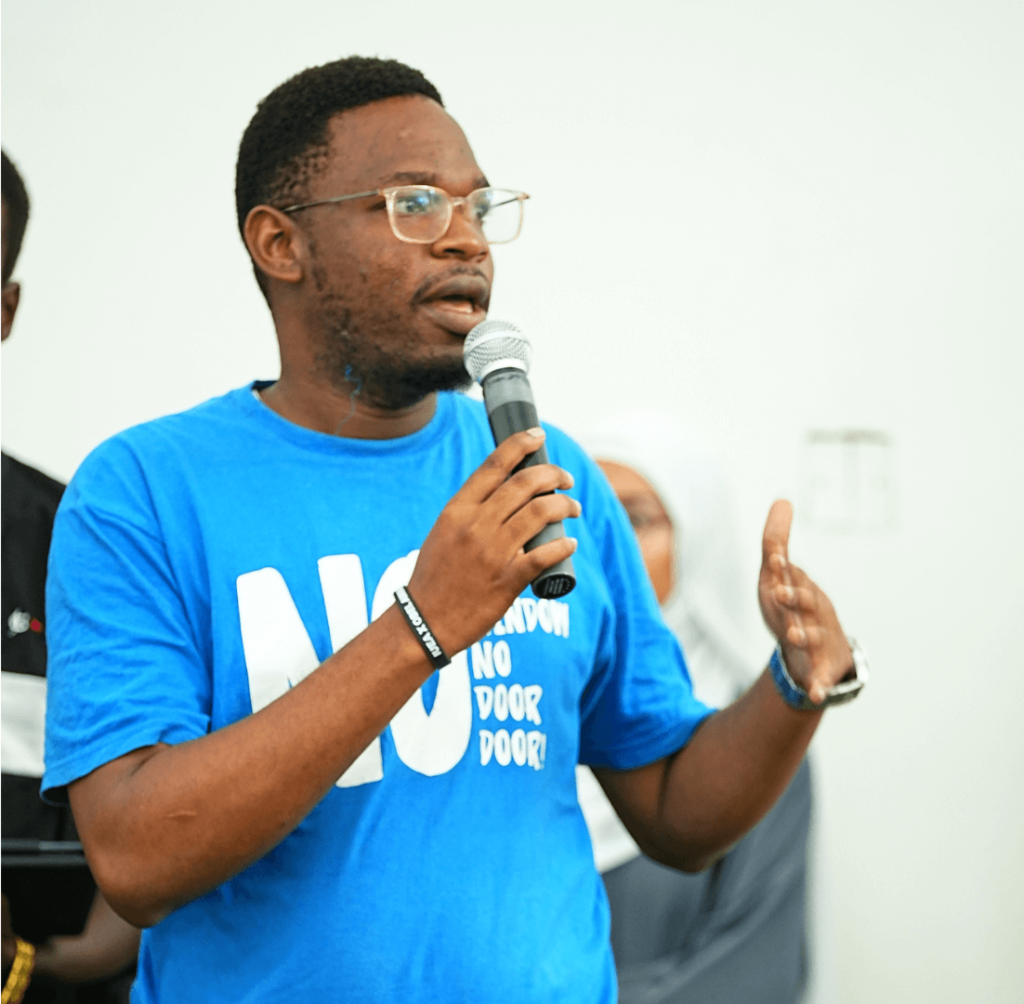
The event garnered praise from local dignitaries, including the LC1 and representatives from academia, who lauded the students’ ingenuity and dedication. Their words underscored the impact of these designs on real-world challenges and the potential for lasting change.
As attendees marvelled at architectural marvels, they were treated to delectable refreshments and exclusive memorabilia, courtesy of IUEA’s Department of Architecture and the Obel Award Fellowship. The event was not just a showcase of talent, but a celebration of community and collaboration.

What happened after the presentations?
Transitioning from digital models to tangible prototypes, the exhibition section allowed participants to showcase their designs in a practical context. Judges were enraptured by the creativity and craftsmanship on display, laying the groundwork for a transformative deliberation phase.
The success of the Obel Award Teaching Fellowship finale reaffirms IUEA’s commitment to holistic education and practical application. As we continue to nurture talent and innovation, we extend an invitation to aspiring architects to join us in shaping the future of our built environment.
In the tapestry of architectural excellence, the Obel Award Teaching Fellowship stands as a testament to the transformative power of education and collaboration. With each design unveiled, we witness not just structures, but the embodiment of creativity, empathy, and vision. As we celebrate this milestone, we eagerly anticipate the next chapter in our journey towards a more sustainable and inclusive world.
